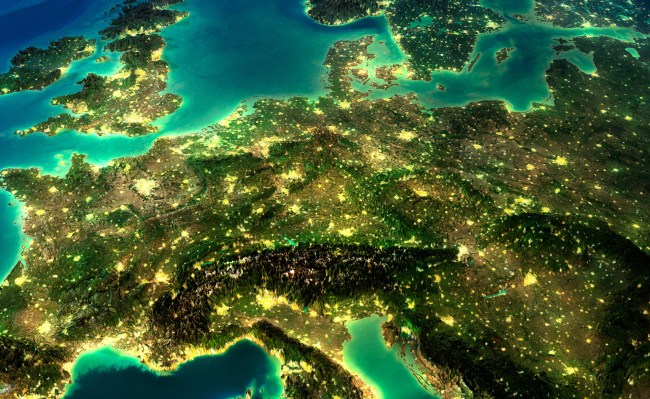The European Commission is holding a press conference later today to trumpet progress made on ending “unjustified geoblocking”, as it tells it, with the stated aim of greasing the wheels of pan-EU ecommerce in time for Christmas.
Which, from a consumer point of view, sounds great. Unfortunately it’s not quite as great as it sounds. Especially if you were imagining it would apply to popular digital media streaming services like Spotify and Netflix. Nope, sorry.
Geoblocks for digital media are not being vanquished in this round of EU Digital Single Market regulation chess.
What is being agreed by EU lawmakers is an end to geoblocks for the sale of goods and services — just not if the electronic services in question happen to be stuff like, er, streaming music, TV, video and so on…
A crumb of comfort on that front is last year agreement was reached among EU institutions on new rules around the portability of digital content for travelers — meaning that from this year EU citizens traveling across the 28 Member State bloc can now access the online media services which they have already subscribed to when they are on holiday in another EU country.
But if you want to actually subscribe to — and continuously consume — those sorts of audio-visual digital services across EU borders, well, you’re going to be out of luck. Copyright being the major blocker here.
What does this mean in practice? Well, EU geoblocks are certainly alive and well if you try to sign up to — for example — Netflix from a different Member State to the EU country where you live (or where your bank cards were issued).
Or even if you attempt to buy a Spotify gift card for a person who lives in a different EU country to the country you do.
The digital service providers will simply deny these kind of transactions — and the notion of an EU ‘digital single market’ will be shown up as rather more aspiration than actual at this point. Nor is that situation going to change this year.
The Commission does know this — because it’s at least making an attempt to address the regulatory dissonance. In September 2016 it proposed additional EU legislation aimed at facilitating the provision of cross-border audiovisual services.
But an EC spokeswoman confirmed to us that those provisions remain under negotiation.
And, as MEP Julia Reda tweeted yesterday, progress is slow. The progress-blocking culprit? Take a bow Hollywood et al…
In a 2016 impact assessment document attached to the Commission’s proposal — and specifically discussing the licensing of video on demand rights — the EC wrote that its preferred option “includes a European stakeholders’ dialogue and a negotiation mechanism that would facilitate the conclusion of licences for the online exploitation of audiovisual works by removing contractual blockages”.
Which is a long-winded way of saying they need to get the entertainment industry to agree to cross-border licensing. So, frankly speaking, I wouldn’t hold your breath for the arrival of that truly seamless digital single market dream.
The EC’s VP for the #DigitalSingleMarket recognized the problem in comments made at a plenary meeting yesterday — saying it intends to pay “particular attention” to the “non-audio visual copyright protected services like software, games, e-books and music”, and admitting the current regulation only partially covers this sort of digital content.
His comments also confirm that services like Netflix represent the hardest digital content cross-border portability problem to fix. (Even — and here’s the consumer kicker — as they’re likely to be the kind of services EU citizens really do want ‘seamless’ access to… )
So, for the circa 20 million EU citizens the EC says were born in a different EU Member State from the one where they live now, there will be around three years’ wait before the Commission is even going to take a closer look at the kind of geoblocks they’re still being saddled with.
And the Christmas 2018 consolation prize of a partial end to geoblocks is just that: A piecemeal offer that doesn’t change much.
Instead of seamless cross-border access to popular streaming media services this year, EU citizens might be able to shop online for physical goods from another EU Member State which they then have to go and pick up themselves (or arrange their own shipping).
They may also be able to purchase an electronic service like web hosting from another Member State without having to pay any additional fees (though not necessarily obtaining the service at the same price).
And they could perhaps be able to purchase a service provided in a specific physical location without being redirected to a local website to do so.
All thanks to the Commission’s ‘unjustified geoblocks’ regulation. (‘Might’, ‘may’ and ‘could’ because the EC notes the regulation does not impose an obligation on companies to sell. Nor does it harmonise prices, as noted above.)
The point of this piecemeal regulation, says the EC, is to address discrimination in access to goods and services “in cases where it cannot be objectively justified (e.g. by VAT obligations or different legal requirements)”.
It’s just a shame it’s the Commission has failed to embrace a meaningful reform of digital copyright rules across the bloc. And you’ll therefore have to forgive some of us EU consumers for not finding a whole lot to celebrate here.
